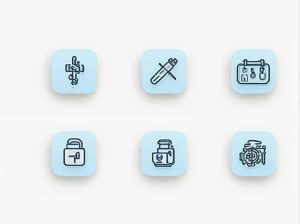Memorizing information quickly and retaining it for a long time is a valuable skill, whether youre a student preparing for exams, a professional learning new skills, or simply someone trying to improve memory. Fortunately, there are proven techniques that can help enhance memory retention and recall.
This content explores scientific methods, effective study techniques, and brain-boosting strategies to help you memorize faster and prevent forgetting.
Understanding How Memory Works
Before diving into memorization techniques, its important to understand how memory functions. The brain processes and stores information in three main stages:
- Encoding Converting new information into a format the brain can store.
- Storage Retaining the information over time.
- Retrieval Accessing stored information when needed.
To memorize effectively, you need to strengthen all three stages.
Effective Techniques to Memorize Fast
1. Use Mnemonics and Acronyms
Mnemonics help simplify information into memorable patterns, phrases, or images. Some useful mnemonic techniques include:
- Acronyms Create a word using the first letter of each item.
- Example: To remember the colors of the rainbow, use ROYGBIV (Red, Orange, Yellow, Green, Blue, Indigo, Violet).
- Rhymes and Songs Turn information into a rhythm or melody to make it easier to recall.
- Visualization Associate information with strong mental images or symbols.
2. Use the Memory Palace Technique
The Memory Palace (also called the Method of Loci) is a powerful memorization technique used by memory champions. It involves:
- Visualizing a familiar place (such as your house).
- Associating each piece of information with a specific location.
- Mentally walking through the location to recall the information.
For example, if you need to memorize a shopping list, imagine placing each item in different rooms of your house.
3. Practice Active Recall
Active recall is one of the most effective ways to strengthen memory. Instead of passively rereading notes, actively test yourself by:
- Closing your book and trying to recall key points.
- Writing down what you remember from memory.
- Using flashcards to self-test information.
This technique forces the brain to retrieve and reinforce knowledge, making it more memorable.
4. Apply the Spaced Repetition System (SRS)
Spaced repetition is a scientifically backed method that improves long-term retention by reviewing information at increasing time intervals.
- Review new material immediately after learning.
- Revisit the material after one day, one week, and one month.
- Gradually increase the time between reviews.
Apps like Anki and Quizlet use spaced repetition to help with memorization.
5. Chunking: Break Information into Small Parts
The brain can only store a limited number of items in short-term memory. To memorize large amounts of information, use chunking:
- Break long numbers into smaller groups (e.g., 178943567 ? 1789 – 435 – 67).
- Divide a long list into meaningful categories.
- Group similar concepts together to form connections.
6. Teach What You Learn
Teaching forces you to organize and simplify information, making it easier to understand and remember. Try these methods:
- Explain concepts out loud as if teaching someone.
- Summarize key ideas in your own words.
- Discuss topics with friends or family members.
This approach strengthens memory consolidation and highlights areas where you need more review.
7. Relate New Information to What You Already Know
Connecting new information to existing knowledge helps it stick in memory.
For example, if learning a new language, associate new words with familiar words in your native language. If studying history, link events to personal experiences or familiar stories.
8. Write Notes by Hand
While digital note-taking is convenient, writing by hand is more effective for memory. Studies show that handwriting:
- Involves deeper processing of information.
- Improves understanding and recall.
- Enhances long-term retention.
Try summarizing lessons in a notebook or using mind maps to visualize connections.
Lifestyle Habits to Improve Memory
1. Get Enough Sleep
Sleep plays a crucial role in memory consolidation. Without proper rest, the brain struggles to store and recall information.
To boost memory:
- Aim for 7-9 hours of quality sleep per night.
- Avoid screens before bedtime to improve sleep quality.
- Take short naps after studying to reinforce learning.
2. Exercise Regularly
Physical activity increases oxygen flow to the brain and boosts memory. Studies show that aerobic exercise like running, swimming, and walking enhances cognitive function.
Aim for at least 30 minutes of exercise, 3-5 times per week.
3. Eat Brain-Boosting Foods
A healthy diet rich in brain-boosting nutrients improves memory and concentration. Eat foods like:
- Fatty fish (rich in omega-3s for brain health).
- Blueberries (contain antioxidants that improve memory).
- Nuts and seeds (good sources of vitamin E).
- Dark chocolate (improves blood flow to the brain).
- Leafy greens (provide essential vitamins for brain function).
4. Manage Stress and Anxiety
High stress levels can negatively impact memory and concentration. Reduce stress by:
- Practicing meditation and deep breathing.
- Taking short breaks during study sessions.
- Engaging in hobbies and relaxation activities.
5. Stay Hydrated
Dehydration can cause brain fog and poor concentration. Drink at least 8 glasses of water per day to maintain optimal cognitive function.
6. Minimize Distractions
A quiet and organized study environment helps improve focus and memory. Tips for better concentration:
- Turn off phone notifications while studying.
- Use noise-canceling headphones in noisy environments.
- Set specific study times and stick to a routine.
Common Memory Mistakes to Avoid
1. Relying Too Much on Cramming
Cramming may help in the short term, but it doesnt lead to long-term retention. Instead, use spaced repetition for better memory.
2. Multitasking While Studying
Switching between tasks reduces focus and weakens memory. Focus on one subject at a time for better learning.
3. Passive Learning
Simply rereading notes or textbooks is not enough. Actively engage in self-testing, summarizing, and teaching to retain information.
Final Thoughts
Memorizing fast and preventing forgetfulness is possible with the right strategies and habits.
To improve memory, try:
? Mnemonics and visualization for easier recall.
? Active recall and spaced repetition for long-term retention.
? A healthy lifestyle with good sleep, diet, and exercise.
With consistent practice, you can train your brain to retain information effectively, making learning faster and more enjoyable!



